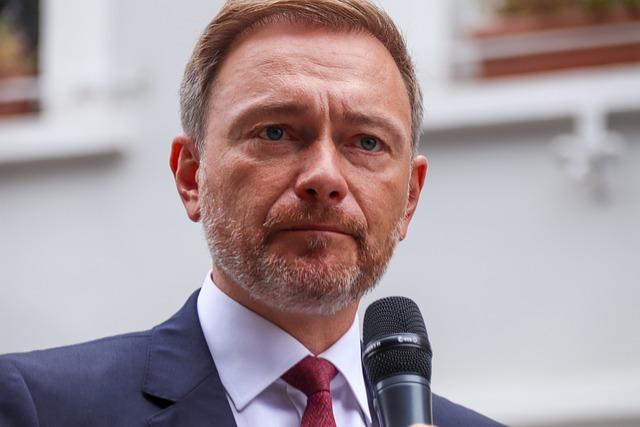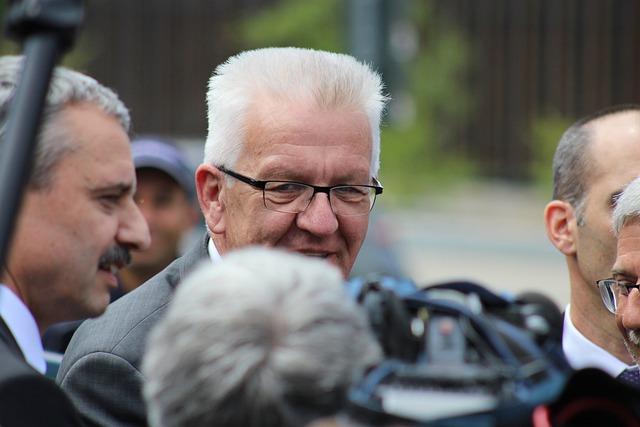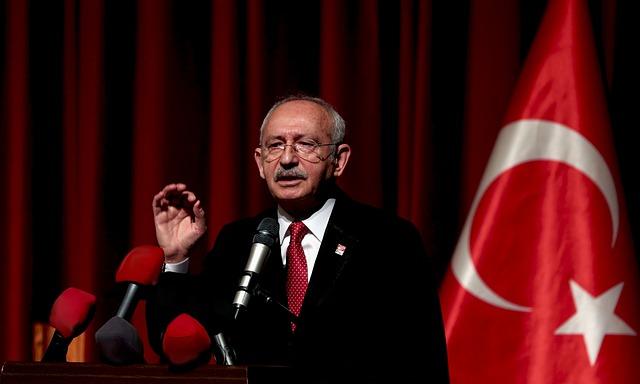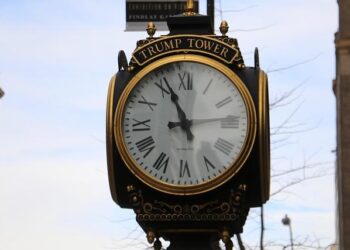In a significant diplomatic development,a far-right Israeli minister has made a trip to Washington,marking a notable shift in the U.S. approach to Israeli politics after years of distancing from figures associated with extremist ideologies.This visit comes amid heightened tensions in the Middle East and evolving political landscapes in both the U.S. and Israel. The minister, known for controversial statements and policies, has long been shunned by previous American administrations, which sought to distance themselves from the nationalist rhetoric that has characterized segments of Israeli leadership. As the Biden governance navigates its foreign policy priorities, the implications of this visit could impact U.S.-Israel relations and broader regional dynamics, resonating with allies and adversaries alike. This article explores the motivations behind the visit, the reactions it has elicited, and its potential consequences in shaping future dialogue in the region.
Far-Right Minister Embraces Washington Amid Changing Political Dynamics
The recent visit of a far-right Israeli minister to washington marks a significant shift in diplomatic dynamics, reflecting a broader realignment within U.S.-Israeli relations. Once marginalized due to his controversial stances, this minister is now at the center of political discussions, suggesting a warming of relations that many analysts beleive could reshape policy agendas. While previous administrations have kept a distance from such figures, the current political landscape, characterized by a more nationalist approach, appears to embrace a wider spectrum of voices in Israeli governance. This signals a potential pivot, as Washington reassesses its engagements based on evolving geopolitical considerations.
During the visit,several key themes emerged in discussions between the minister and U.S. officials, emphasizing shared interests and future cooperation. Topics included:
- Regional Security: Focus on collaborative strategies to ensure stability in the Middle East.
- Trade Relations: Potential agreements aimed at enhancing economic ties and technology exchanges.
- Cultural Exchange: Initiatives promoting understanding and support between the two nations.
This diplomatic thaw, however, is not without challenges. Critics question the implications of aligning with far-right elements,citing concerns over human rights and democratic values. Meanwhile, supporters argue that such engagements are crucial for a resilient alliance, potentially paving the way for innovative solutions to long-standing conflicts.

Implications of the Visit for US-Israel Relations and Regional Stability
The recent visit by a far-right Israeli minister to Washington marks a significant turning point in US-Israel relations,indicating a potential shift in the diplomatic landscape. For years,this minister was regarded with skepticism by American officials,primarily due to his controversial positions. His reception in the U.S. suggests a willingness from the Biden administration to engage with all facets of the Israeli government, fostering dialogue and potentially expanding cooperation on various fronts. Though, this outreach could also embolden right-wing factions within Israel, resulting in heightened tensions with the Palestinian Authority and neighboring Arab states.
Moreover, the implications of this visit extend beyond bilateral relations, influencing regional stability as a whole. The impact may include:
- Increased tensions: A more assertive Israeli stance could exacerbate conflicts in Gaza and the West Bank.
- Reactions from Arab nations: This engagement might provoke pushback from pivotal players like Egypt and Jordan, who have historically maintained peace treaties with Israel.
- Realignment of alliances: The shift could affect relations with countries like Saudi Arabia, which may reassess their diplomatic strategies in light of Israel’s far-right policies.

Reactions from Political Leaders and Advocacy Groups in the US
In the wake of the controversial visit by far-right Israeli Minister itamar Ben-Gvir to Washington, political leaders across the United States have expressed a mix of concern and condemnation. Prominent figures from both parties voiced apprehension over the implications of his policies, particularly concerning their impact on Israeli-Palestinian relations. Among the reactions were:
- Senator Chuck Schumer: “Welcoming figures who promote division and hostility undermines the quest for peace in the Middle East.”
- Representative Alexandria Ocasio-Cortez: “We cannot normalize those who perpetuate violence and discrimination.”
- secretary of State Antony blinken: “The U.S. remains committed to the two-state solution, and visits like this challenge that.”
Advocacy groups have also taken a strong stance against the visit, arguing that it sets a precedent for legitimizing extremist views. Civil rights organizations, alongside pro-peace coalitions, have mobilized their supporters through statements and protests aimed at raising awareness about the potential repercussions of such diplomatic engagements. Key positions include:
| Organization | Statement |
|---|---|
| American Civil liberties Union | “This visit marks a troubling turn in U.S.foreign policy that prioritizes extremism over dialogue.” |
| J Street | “We must unite against policies that exacerbate conflict and inequality.” |
| Human Rights Watch | “Inviting hate into the public sphere does not support our democratic values.” |

Public Sentiment and Concerns Over Extremist Policies
The recent visit of a far-right Israeli minister to Washington after years of diplomatic estrangement has stirred a complex wave of public sentiment, revealing deep divides within both Israeli and american societies. Many observers are expressing concerns that such a visit could normalize extremist views and policies that are increasingly at odds with democratic values.There is an apprehension that the minister’s presence may signal a shift towards a more aggressive stance in Israeli politics, potentially jeopardizing efforts for peace and coexistence in the region. The rhetoric surrounding the visit has ignited protests and discussions, as citizens grapple with the implications of endorsing leadership that advocates for divisive policies.
Amidst this backdrop, various advocacy groups and political analysts are voicing their concerns over the broader implications of such extremism. They argue that legitimizing these far-right ideologies undermines pluralism and human rights. As public opinion continues to crystallize, several key concerns have emerged:
- Impact on U.S.-Israel relations: There are fears that this visit might strain diplomatic ties with moderate factions that advocate for a two-state solution.
- Domestic implications: The minister’s visit has raised alarm among U.S. citizens engaged in civil rights advocacy, fearing internal polarization.
- International repercussions: Allies of both nations are closely observing this development, potentially adjusting their foreign policies based on the reception of extremist leaders.

Strategies for Constructive Dialogue Moving Forward
To cultivate a productive environment for meaningful communication, particularly in sensitive political contexts, several strategies should be embraced by stakeholders. These include:
- Active Listening: Encouraging all parties to genuinely listen to each other’s perspectives can foster understanding. This involves not just hearing words,but comprehending the emotions and intentions behind them.
- Establishing Common Ground: Identifying shared values or goals can help in bridging divides.A focus on common aspirations can serve as a foundation for dialogue.
- Inviting Diverse Voices: Ensuring that conversations include a spectrum of viewpoints helps to reduce polarization and enrich discussions by introducing varied experiences and insights.
- Maintaining respectful Tone: Initiating dialogue with a commitment to civility can transform the conversation dynamics, promoting a more constructive exchange of ideas.
moreover, creating structured forums for dialogue can facilitate ongoing exchanges and mitigate future conflicts.consider implementing:
| Forum Type | Purpose | frequency |
|---|---|---|
| Roundtable Discussions | Facilitate direct dialogue between opposing views | monthly |
| Public Workshops | Educate on issues and create awareness | Quarterly |
| Online Forums | Engage broader audiences in discussions | Ongoing |

The Future of Israeli Politics in the Context of International Relations
The recent visit of a far-right israeli minister to Washington marks a significant shift in Israeli politics and its interplay with global diplomatic relations. For years, this minister has faced considerable international criticism, largely due to a reputation defined by contentious policies and polarizing rhetoric. Now,engaging with U.S. officials not only signals an attempt to reset these relations but also highlights changing dynamics within the Israeli government that could reshape its foreign policy agenda. The meeting is seen as an possibility to reinforce alliances, challenge existing narratives, and recalibrate Israel’s position on the global stage.
In this context, several factors may influence the trajectory of Israeli politics moving forward:
- Increased Isolation vs. Engagement: The visit raises questions about whether Israel will continue to isolate itself from the broader international community or actively pursue engagement with nations that may have distanced themselves due to internal policies.
- Impact of Domestic Politics: The current prowess of far-right elements within the Knesset could steer foreign policy decisions, either promoting a more aggressive stance in the region or opening avenues for pragmatic diplomacy.
- U.S. Political Climate: The response from the Biden administration could substantially impact Israel’s international relations, influencing how other countries perceive and interact with Israel.
| Factor | Potential Impact |
|---|---|
| Far-Right Policies | Increased tension with neighboring countries |
| Diplomatic Engagement | Restored ties with conventional allies |
| International Criticism | Possible sanctions or diplomatic isolation |

Insights and Conclusions
the recent visit of the far-right Israeli minister to Washington marks a significant turning point in U.S.-Israel relations, particularly given the history of his previous exclusion from diplomatic engagements. This trip not only underscores the shifting dynamics within Israeli politics but also highlights the evolving nature of American foreign policy toward Israel under the current administration. As the geopolitical landscape continues to shift, the implications of this rekindled dialogue will be closely watched by analysts and policymakers alike. As both nations navigate their strategic interests amid rising tensions in the region, the ramifications of this visit will likely resonate for some time, shaping future interactions and potentially redefining long-standing alliances.

















